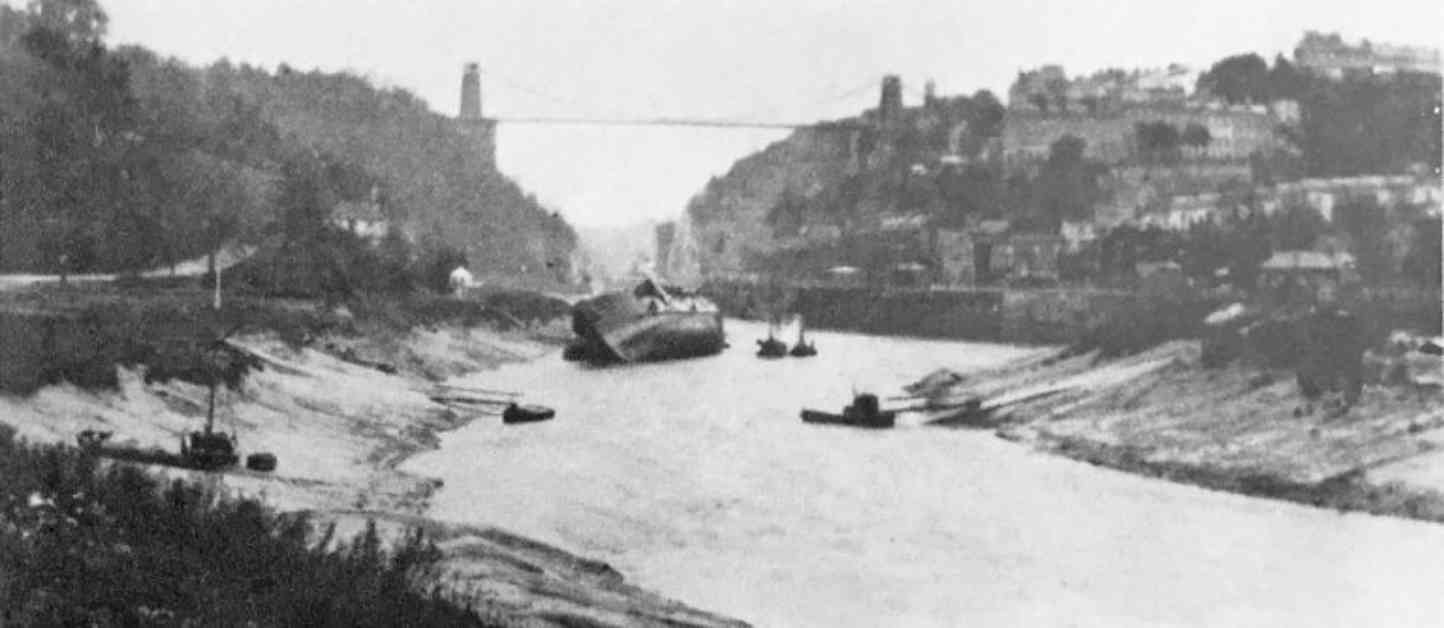The Ettrick Robbery: A Notorious Crime Uncovered
In the autumn of 1924, a remarkable incident unfolded on the River Avon that left part of Bristol in a state of chaos and disbelief. The SS Ettrick, a steamship en route to Belfast, found itself in a predicament that would soon captivate the city.
The early hours of September 6 saw the SS Ettrick departing from the docks under the cover of thick fog, making navigation treacherous. As the vessel approached the Horseshoe Bend, it ran aground on the Gloucestershire bank near Sea Mills railway station, becoming lodged in the mud.
The Ettrick, a majestic ship measuring 73m in length and over 9m in width, was a sight to behold with its black hull and brown cabins. Under the command of Captain White, the crew of 25 and eight passengers, including women and children, embarked on the ill-fated journey. Laden with a cargo of cloth, flour, alcohol, and metal goods, the Ettrick faced a daunting challenge ahead.
As the tide shifted, the Ettrick swung across the river, obstructing passage to Bristol for larger vessels. With water seeping in and the ship listing, evacuation became necessary by 3.30am. The passengers were carefully transferred to safety, while the crew received hospitality at the British and Foreign Sailors’ Society quarters.
Efforts to refloat the Ettrick proved futile as three steam tugs struggled against the tide. Eventually, a decision was made to lighten the ship by discarding cargo. Hatches were opened, and packing cases were jettisoned, some disappearing into the Bristol Channel while others washed ashore.
News of the stranded ship spread rapidly, drawing crowds from Sea Mills, Shirehampton, and beyond. The chaos escalated as people scrambled to salvage goods from the Ettrick, mainly cigarettes and chocolate, which were either sold at discounted rates or abandoned on the riverbank.
The unfolding drama culminated in the Ettrick capsizing, disrupting river traffic and diverting boats to Avonmouth. Pleasure cruises to various destinations were halted for nearly a week due to the maritime obstruction.
Subsequent legal proceedings at the police court revealed a group of men accused of looting the Ettrick’s cargo. Charged with pilfering cigarettes, chocolate, shoes, and socks, the defendants claimed ignorance, believing the goods were discarded or sold as salvage. Despite the prosecutor’s accusations of a “disgraceful orgy of robbery,” the men were bound over for twelve months for their actions.
Another individual, Richard William Bridgwater, faced allegations of possessing stolen goods but was exonerated after asserting he found the items adrift and intended to surrender them to authorities. The incident underscored the confusion and opportunism that ensued in the wake of the Ettrick’s mishap.
As the legal proceedings concluded, the Ettrick was towed back to Bristol for dismantling. The remaining cargo, including cocoa, cider, flour, leather, cloth, toys, and horse nails, was auctioned off. However, the missing 50 cases of whisky remained a lingering mystery.
The aftermath of the Ettrick robbery left an indelible mark on Bristol, prompting reflection on the consequences of opportunism and the importance of upholding maritime law. The incident served as a cautionary tale of how chaos can unravel in the face of disaster, shedding light on the resilience and vulnerabilities of a community in crisis.













